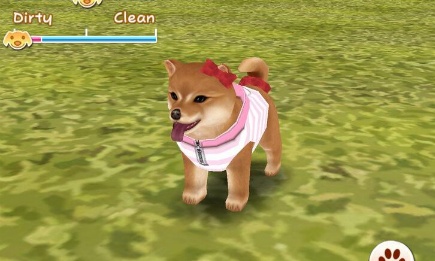
British American Tobacco has apologised after an advert for its Vype e-cigarettes brand was spotted in an iPad children's app.
The ad was spotted by author and educator Graham Brown-Martin, who tweeted a screenshot showing the Vype banner appearing inside the My Dog My Style HD game.
After he alerted BAT's corporate Twitter account, the company pulled its online advertising for Vype, then followed up with an apology and explanation. "We've investigated and found a breach of protocols by third party used by ad agency. It's unacceptable and we're taking the issue seriously," explained BAT.
"This evening we have ensured that the procedures and protocols our agencies and their suppliers use are reviewed... We apologise that this has happened and are working to ensure this never happens again."
This is not an isolated example of inappropriate ads appearing within a children's app, though. In a subsequent conversation with Brown-Martin, Twitter user Nik Rosser tweeted a screenshot taken from a "puppy dress-up" game he'd found his daughter playing, showing a gambling ad.
In October 2012, the Guardian reported on ads for payday lender Wonga appearing in the Talking Ginger app, while four months later the same developer's Talking Friends Cartoons app was found to be promoting a ringtones subscription service that could have cost up to £208 a year.
That developer, Outfit7, has since clamped down on what ads appear in its Talking Friends apps, which have been downloaded more than 1.2bn times. "We believe we should be an example. We have a huge user-base among kids, and we can't afford to take that lightly," chief executive Samo Login told The Guardian in June 2013.
This isn't so much a problem of disreputable developers as it is of oversight when allowing in-app ads to appear in apps intended for children.
Developers don't sell ads directly to companies like BAT and Wonga: instead they sign up with advertising networks to have their banner spaces filled with display ads. Fail to set the right filters, and inappropriate ads may appear.
It also reflects a wider problem in the children's apps market, where many developers are struggling to recoup their costs. A lot of parents still only download free apps for their children, so making money from paid downloads is difficult. Yet in-app purchases come fraught with their own ethical challenges, alongside those attached to advertising.
Some companies – SuperAwesome in the UK for example – are trying to build advertising networks of trusted brands for children's apps, reasoning that advertising funds children's television and magazines, so there must be an appropriate model for apps and games too.
In the meantime, there is responsibility on all sides: on developers to take more care when using advertising and/or in-app purchases within children's apps, on ad networks to help their clients set the necessary filters (and on brands like BAT to ensure this is happening) and on parents to monitor the apps their children are using, and perhaps, to consider paying for ad-free apps more often.

